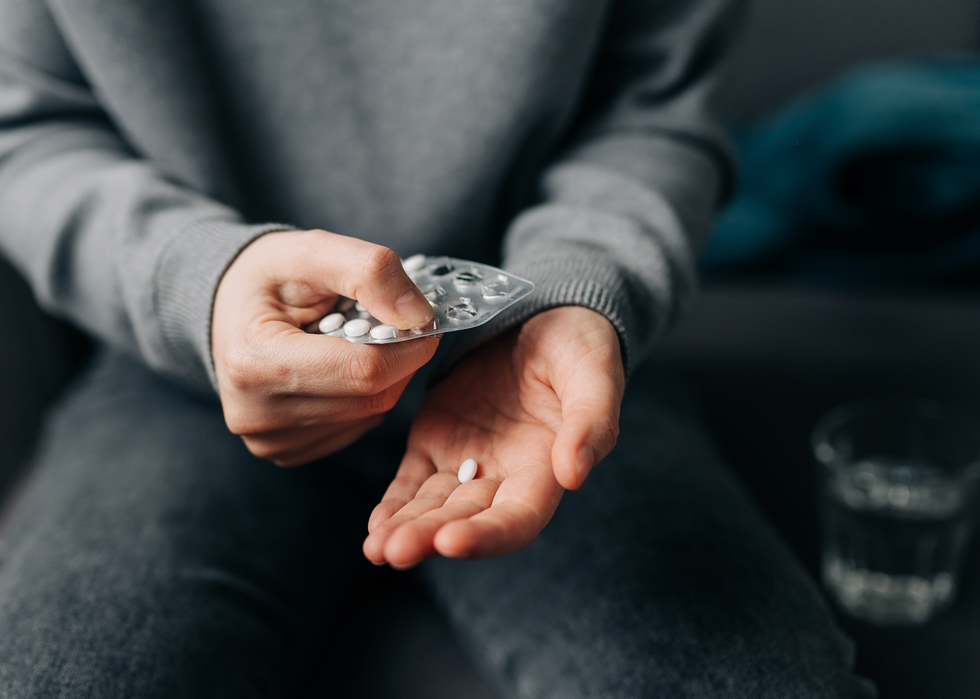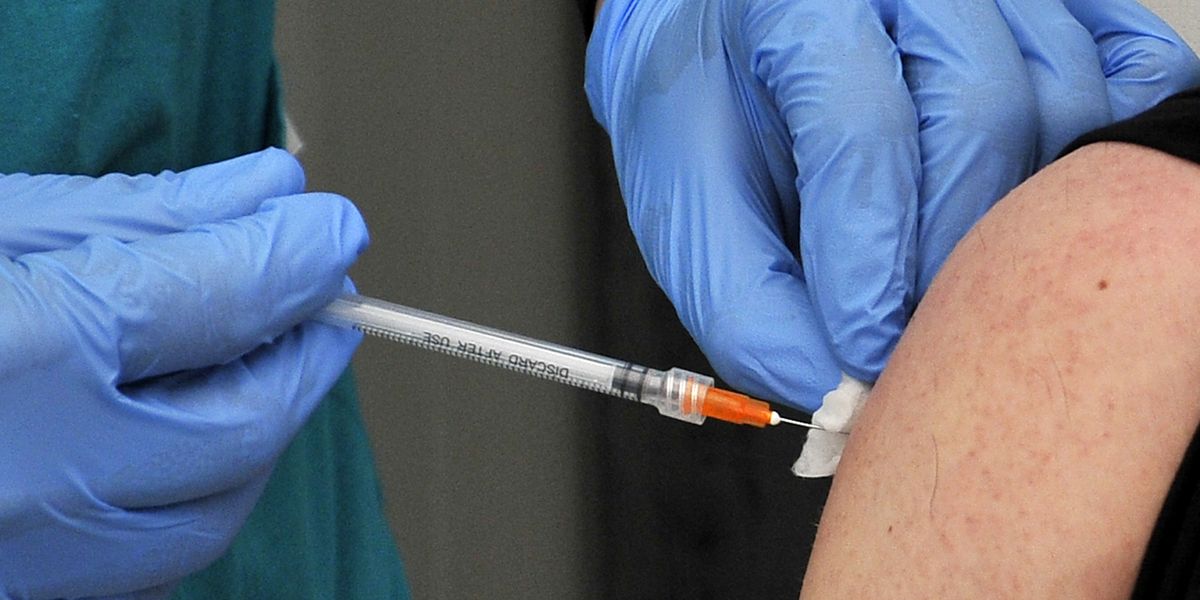

Thousands of patients in England are to be offered a daily pill that will halve the frequency of migraines.
Atogepant – sold under the brand name Aquipta and made by AbbVie – will be offered to 170,000 migraine sufferers.
The National Institute for Health and Care Excellence (NICE) gave the greenlight for the drug, which comes in tablet form, to be rolled out on the NHS after clinical trials suggested it was effective in some adults.
A migraine charity has called for “swift” access to the drug to ensure patients with the debilitating condition “can benefit from them as quickly as possible”.

The pill works by blocking the receptor of a protein that triggers migraines
So, how does it work and who is eligible?
Atogepant works by blocking the receptor of a protein found in the sensory nerves of the head and neck, known as calcitonin gene-related peptide (CGRP).
CGRP makes blood vessels dilate, which can lead to inflammation and migraine.
It has been recommended for those who have not responded well to other medications or cannot have injections.
Specifically, it will be an option for people who have at least four migraine days a month, and who have tried at least three other treatments to no avail.
NICE recommends that Aquipta should be stopped after 12 weeks if chronic migraines do not reduce by at least 30 percent and episodic migraine by at least 50 percent.
Chronic migraine is where a person has at least 15 headache days a month, with at least eight of those having features of migraine. Episodic migraine is where a person has fewer than 15 headache days each month.
Around 170,000 patients in England will be eligible for the drug, NICE said.
Helen Knight, director of medicines evaluation at Nice, said: “Currently, the most effective options for people with chronic migraines who have already tried three preventative treatments are drugs that need to be injected.
“The committee heard from patient experts that some people cannot have injectable treatments, for example because they have an allergy or phobia of needles.”
Ms Knight said patients with chronic migraines – that happen on more than 15 days of the month – “would welcome an oral treatment”.

The drug is recommended for those who have not responded well to other medications or cannot have injections
Getty Images
She added that Aquipta also “offers more choice” for people who suffer episodic migraines, which happen on fewer than 15 days of the month.
According to The Migraine Trust, about 10 million adults in the UK are living with the condition.
The charity’s chief executive, Rob Music, said: “A migraine attack can be incredibly debilitating.
“Symptoms can include intense head pain, loss of or changes to the senses, and lack of ability to carry out day-to-day life.
“It is positive to see even more therapies emerging for people with migraine as many still rely on treatments developed for other conditions.
“We now need to ensure access is swift, so that migraine patients can benefit from them as quickly as possible.”
Health minister Andrew Stephenson said: “Migraines affect millions of people in this country and this new treatment will help prevent recurring migraine attacks when other medicines have failed.
“It will allow more people whose daily life is affected by this painful, debilitating condition to manage their migraines more effectively and to live their lives to the fullest.”
NICE’s guidance for England comes after Aquipta was recommended for use in Scotland by the Scottish Medicines Consortium (SMC) in October last year.
Rachael Millward, medical director at AbbVie UK, said: “AbbVie has an extensive history in migraine research and is committed to addressing the unmet needs of people living with this debilitating condition.
“The recommendation from Nice means that suitable people living with migraine in England and Wales will have access to an additional treatment option that has the potential to improve their quality of life.”
NICE recommends that Aquipta should be stopped after 12 weeks if chronic migraines do not reduce by at least 30% and episodic migraine by at least 50 percent.
If there are no appeals against its final draft guidance, Nice is expected to publish its final guidance on the drug next month.
24World Media does not take any responsibility of the information you see on this page. The content this page contains is from independent third-party content provider. If you have any concerns regarding the content, please free to write us here: contact@24worldmedia.com

Do you believe the Covid vaccine had negative side effects? VOTE HERE

Latest Google layoffs hit the Flutter and Python groups

‘Women’s rights have been attacked constantly!’

Here’s your chance to own a decommissioned US government supercomputer

AWS S3 storage bucket with unlucky name nearly cost developer $1,300

FTC fines Razer for every cent made selling bogus “N95 grade” RGB masks

Apple confirms bug that is keeping some iPhone alarms from sounding

Roundtables: Inside the Next Era of AI and Hardware

Supplements: Ginkgo biloba boosts memory